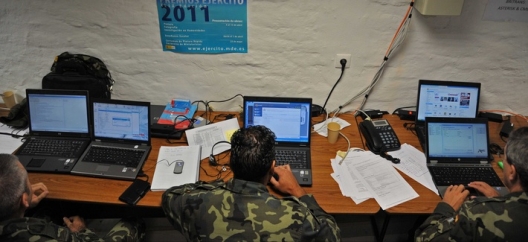
NATO must expeditiously operationalize the Enhanced Cyber Defense Policy endorsed at the summit, which reinforces that NATO members will work together to build up the alliance’s cyber defenses. Protecting its member nations entails having its communications, troops, and command and control structures protected against cyber threats. . . .
To level the playing field against new threats, NATO must consider several avenues for reform:
First, NATO must reconsider its cybersecurity vulnerabilities and adversaries. Many believe the distributed denial of service attacks of March 2014 succeeded because NATO’s cyber defense kit did not include protection against these common cyber attacks. Although it is hard to keep persistent attackers out of the systems, NATO should analyze how malicious actors target political and military organizations and adjust its defenses accordingly.
The private sector faces similar cybersecurity threats and could offer guidance and expertise to the alliance. If the organization is caught in a crisis and is unable to perform its tasks, information on who might be behind the attack is likely available in the private sphere. A two-way information-and-capability-sharing agreement with the private sector for major crisis management would allow NATO to respond to attacks more quickly and effectively.
Second, NATO must develop a way to support an ally that suffered a cyber attack in a speedy manner, with technical assistance and forensic expertise through the Rapid Reaction Teams. Currently, nations must request the deployment of these teams and the decisions are made through political consultations. This slow process does not reflect the realities of cyber attacks, where the adversary can get in the system, do the damage, come out of it, and conceal the traits. And to do all this in a time frame that dramatically outpaces NATO’s decision making process.
NATO has currently increased its efforts to provide reassurance and a policy framework to help deter potential threats to its Eastern allies. The organization is currently not up to the cyber challenge that can potentially develop as a result of changed posture in the East. Only a commitment to implementing the new cyber policy quickly and efficiently can help NATO ensure it is ready for cyber attacks on its members.
Klara Tothova Jordan is assistant director of the Atlantic Council’s Cyber Statecraft Initiative.
Image: Members of Ukraine participating in exercise Combined Endeavor 2011 in Grafenwoehr, Germany. (photo: Staff Sgt. Ryan Whitney/DoD)

